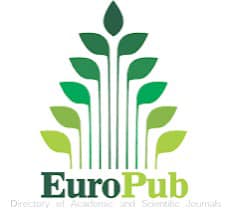Junk Food Consumption and its Health Effect among Medical Students in Baghdad, Iraq
DOI:
https://doi.org/10.69667/amj.24204Abstract
Consumption of unhealthy food is a widespread phenomenon among young individuals, even those studying medicine. The heightened academic workload experienced by medical students has a detrimental impact on their dietary decisions, leading to a stressful lifestyle. This study aimed to assess the incidence of junk food consumption and its impact on the health of Iraqi medical students. A cross-sectional study was done from May 2024 to June 2024 in the medical department, which includes medicine, dentistry, and pharmacy. The study utilized a standardized questionnaire. The participants' ages ranged from 18 to 24. Data was collected to assess the knowledge and health impacts of consuming junk food. This included gathering information on eating habits, preferences, timing of intake, the influence of nutritional information on the choice of junk food, and any history of diseases in the past six months. A total of 628 students took part in the study, with 75.2% demonstrating awareness of the hazards and the significant correlation between obesity and fast food. However, a significant majority of participants, specifically 86.5%, consumed fast food. Out of the three students surveyed, 56.4% cited hygiene concerns, 16.8% claimed stomach problems, and 17.8% reported dental problems. A substantial correlation (p-value 0.009) was found between the eating of unhealthy food and feelings of tiredness or lethargy. The poll indicates that medical students possess a greater understanding of the health hazards associated with junk food, yet its intake continues to be prevalent. This suggests that there is a need for additional research on the dietary elements of our future health professionals. Furthermore, timely interventions should be implemented through education and training to raise awareness about the adverse impacts of consuming junk food in society.
يعتبر استهلاك الأغذية غير الصحية ظاهرة شائعة بين الشباب و من ضمنهم من يدرسون في كليات المجموعة الطبية. ويؤثر عبء العمل الأكاديمي المتزايد الذي يعاني منه الطلاب تأثيراً ضاراً على قراراتهم الغذائية، مما يؤدي إلى أسلوب حياة مرهق حيث. تهدف الدراسة الى تقييم مدى انتشار استهلاك الأغذية الغير صحية وأثره على صحة طلاب المجموعة الطبية العراقيين. اجريت دراسة مقطعية شاملة في الفترة من أيار/مايو 2024 إلى حزيران/يونيه 2024 في الأقسام الطبية، التي تشمل تخصصات الطب، وطب الأسنان، والصيدلة. واستخدمت الدراسة استبيانا موحدا.وكانت أعمار المشاركين بين 18 و 24 سنة. وتم جمع بيانات لتقييم المعرفة بالآثارالصحية المترتبة من تناول الاغذية الغير صحية السريعة. وشمل ذلك جمع معلومات عن عادات الأكل، ومواعيد الأكل ، وتأثير المعلومات التغذوية على اختيار الغذاء ، وأي تاريخ للأمراض في الأشهر الستة الماضية. شارك في الدراسة 628 من طالباً، حيث أظهر 75.2 في المائة وعيهم بالمخاطر وبالترابط الكبير بين السمنة والغذاء الغير صحي السريع. ومع ذلك، فإن أغلبية كبيرة من المشاركين، وبالتحديد 86.5 في المائة، يستهلكون الأغذية السريعة. ومن بين الطلاب الثلاثة الذين شملهم الاستقصاء، أشار 56.4 في المائة إلى مخاوف تتعلق بناحية النظافة الصحية، و16.8 في المائة إلى مشاكل في المعدة، و17.8 في المائة إلى مشاكل في الأسنان. وعثر على ارتباط كبير (بقيمة 0.009) بين تناول الطعام غير الصحي والاحساس بالتعب أو الكآبة. يشير الاستطلاع إلى أن طلبةالمجموعة الطبية لديهم فهم أكبر للمخاطر الصحية المرتبطة بالأغذية الغير صحية السريعة، ومع ذلك لا يزال تناولهم لهذه الاغذية شائع منتشر. ويشير ذلك إلى أن هناك حاجة إلى إجراء بحوث إضافية فيما يتعلق بالمكونات التغذوية للعاملين مستقبليآً في المجال الصحي وعلاوة على ذلك، ينبغي تنفيذ التدخلات في الوقت المناسب من خلال التثقيف والتدريب لزيادة الوعي بالآثار السلبية لاستهلاك الأغذية الغير صحية السريعة في المجتمع











